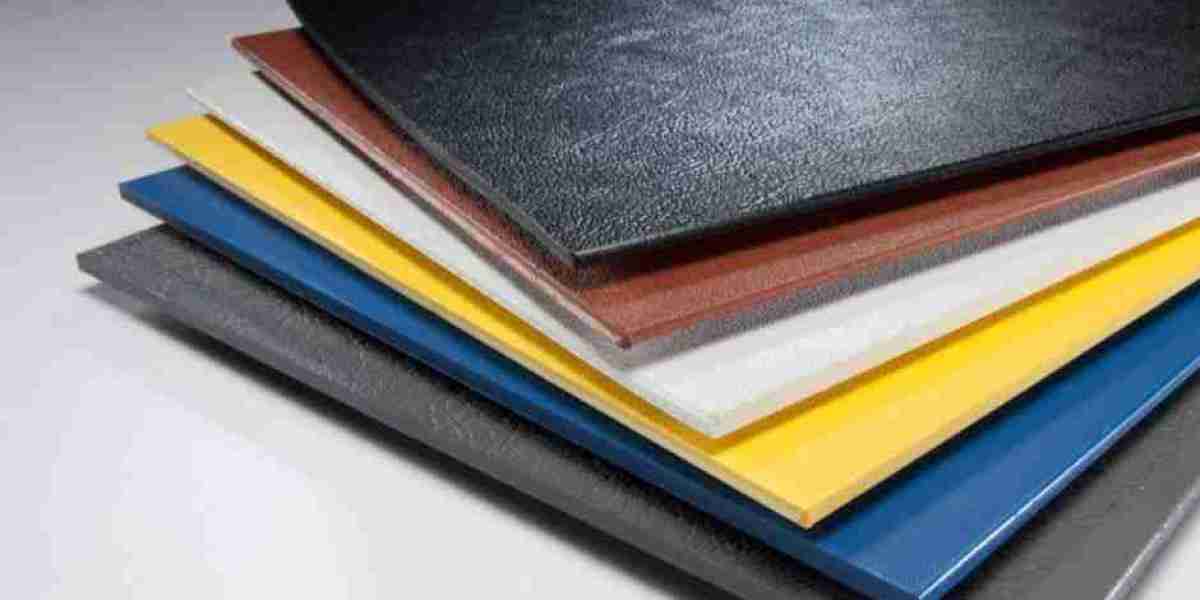Acrylonitrile Butadiene Styrene (ABS) plastic sheets have emerged as a versatile material, catering to a wide range of engineering and industrial applications. Known for their strength, durability, and ease of customization, ABS sheets are indispensable in manufacturing, prototyping, and construction industries. This article explores the benefits, applications, and features of ABS plastic sheets, with a focus on their suitability for engineering needs.
Understanding ABS Plastic Sheets
ABS plastic is a thermoplastic polymer composed of three main monomers: acrylonitrile, butadiene, and styrene. This unique combination offers a balance of rigidity, impact resistance, and smooth finish, making it a preferred material for industrial and consumer applications.
ABS plastic sheets are available in various thicknesses and sizes, such as the popular 1/4 ABS sheet and 4x8 ABS plastic sheet, to suit diverse requirements.
ABS Plastic Sheets' salient characteristics
- High Impact Resistance
ABS sheets are known for their toughness and ability to withstand physical impacts without cracking or breaking. - Lightweight and Durable
Despite their strength, ABS sheets are lightweight, reducing the overall weight of structures and components. - Thermal Stability
These sheets can endure a wide temperature range, making them suitable for applications requiring heat resistance. - Ease of Machining
ABS sheets are easy to cut, drill, and shape, making them an ideal material for customized engineering solutions. - Chemical Resistance
The sheets exhibit excellent resistance to chemicals, oils, and solvents, ensuring durability in harsh environments. - Smooth Surface
The smooth surface of ABS sheets makes them suitable for aesthetic applications, including signage and displays.
Applications of ABS Plastic Sheets
- Prototyping and Model Making
Engineers and designers often use ABS plastic sheets to create prototypes and models due to their machinability and strength. - Automotive Industry
- Dashboards and Panels: ABS sheets are widely used for interior and exterior automotive components.
- Custom Parts: The ease of customization makes them perfect for creating unique automotive parts.
- Construction and Architecture
- Wall Panels: ABS sheets are used for cladding and decorative wall panels.
- Protective Barriers: Their impact resistance makes them ideal for protective barriers and enclosures.
- Consumer Goods
- Household Appliances: ABS sheets are used for casings and housings of electronic devices and appliances.
- Toys and Gadgets: Their non-toxic nature and smooth finish make them suitable for consumer products.
- Industrial Applications
- Machinery Components: ABS plastic sheets are used for gears, bearings, and other machinery parts.
- Tooling: Their durability makes them ideal for jigs, fixtures, and molds.
Benefits of Customizable ABS Plastic Sheets
- Versatility
ABS sheets can be customized in terms of size, thickness, or color to satisfy certain engineering requirements. - Cost-Effectiveness
Because of their resilience and reusability, ABS sheets provide an affordable option for a range of uses. - Eco-Friendly Options
ABS sheets are recyclable, contributing to sustainable manufacturing practices. - Aesthetic Appeal
The smooth and glossy finish of ABS sheets enhances the visual appeal of finished products. - Adaptability to Advanced Techniques
ABS sheets can be vacuum-formed, thermoformed, or 3D-printed, expanding their range of applications.
The Appropriate ABS Plastic Sheet Selection
When selecting ABS plastic sheets for engineering purposes, consider the following factors:
- Thickness
Options like the 1/4 plastic sheeting provide the strength and flexibility required for heavy-duty applications. - Size
Sheets like the 4x8 ABS plastic sheet are ideal for large-scale projects or applications requiring extensive coverage. - Customization
Ensure the manufacturer offers customization options to meet your project’s specific requirements. - Manufacturer’s Reputation
Partnering with reliable manufacturers such as Pulkit Plastic Products ensures quality and durability.
The ABS Plastic Sheet Manufacturing Process
- Material Preparation
Raw materials (acrylonitrile, butadiene, and styrene) are combined to form ABS resin. - Extrusion
The resin is heated and extruded into sheets of desired thickness. - Finishing
The sheets are cut, polished, and treated for specific properties, such as UV resistance or anti-static coating. - Quality Control
Each sheet undergoes stringent testing to ensure it meets industrial standards for strength, durability, and consistency.
Industry Trends and Innovations
As industries adopt more sustainable practices, manufacturers are developing eco-friendly ABS plastic sheets made from recycled materials. Innovations in surface treatments and additives have also enhanced the sheets’ resistance to UV radiation, fire, and chemicals, further broadening their applications.
With advancements in 3D printing and thermoforming technologies, ABS plastic sheets are increasingly used for intricate designs and high-precision components.
Why Choose Pulkit Plastic Products for ABS Plastic Sheets?
For top-quality ABS plastic sheets tailored to your engineering needs, Pulkit Plastic Products is a trusted name. With a commitment to innovation and customer satisfaction, they provide solutions that align with global quality standards. Whether you need durable 1/4 plastic sheeting or large-scale 4x8 ABS plastic sheets, Pulkit Plastic Products delivers unmatched performance and reliability.
Conclusion
Customizable ABS plastic sheets have revolutionized engineering and manufacturing processes with their exceptional properties and adaptability. From automotive parts to construction panels, their applications are vast and varied. By choosing the right sheet size, thickness, and customization options, businesses can leverage the full potential of ABS plastic sheets for their projects.
As industries continue to demand innovative and sustainable materials, ABS plastic sheets remain a cornerstone of modern engineering solutions, ensuring durability, versatility, and cost-effectiveness for years to come.
Frequently Asked Questions (FAQs)
Q1. What is the typical thickness range for ABS plastic sheets?
ABS sheets are available in various thicknesses, from as thin as 1/16 inch to as thick as 1/4 ABS sheet, depending on the application requirements.
Q2. Can ABS plastic sheets withstand outdoor conditions?
Yes, UV-stabilized ABS sheets are designed to resist prolonged exposure to sunlight and weather conditions, making them suitable for outdoor use.
Q3. Are ABS plastic sheets recyclable?
Yes, ABS plastic is fully recyclable, contributing to eco-friendly manufacturing and waste reduction efforts.


